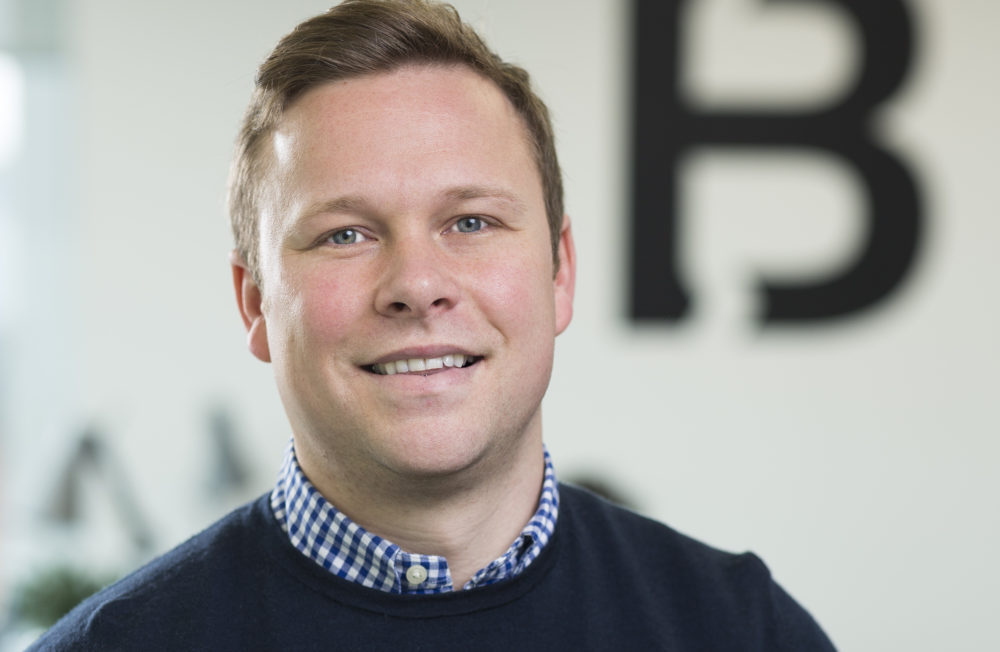Founded up in October 2016, Broadstone is a staffing platform that leverages artificial intelligence and machine learning to match jobseekers with work opportunities at some of the UK’s largest employers. Here, we speak to founder Tom Pickersgill about raising investment, expanding into new sectors and managing scale plans.
What’s the business and when was it started?
Operating within the private security sector, Broadstone is a staffing platform that provides background checks and captures accurate data upfront to verify details, reducing lead times from 12 weeks to just 15 days. We’re expanding and growing at pace, having moved from start-up to scale-up in just over 12 months, from a standing start to a team of ten with a turnover of £450,000. In a year we’ve raised VC investment, built a high-performing team, and launched the platform to the public.
We’re focused on tackling the UK’s private security industry, which has an estimated turnover of £5 billion per year (£265 billion globally) with demand increasing rapidly; Broadstone is the only organisation to offer this service in the highly regulated security and event sector.
The platform features many tech innovations including a machine learning matching algorithm, facial recognition identity checks, gamification, automated invoice/payroll processing, AI-driven chatbot and a geolocation punch clock – making the product one of the most innovative staffing platforms on the market.
There are plans to expand the service into more sectors such as warehousing, logistics, manufacturing and cleaning. The management team is in discussions with investors to decide the focus for the UK market and when to take the business to an international level, as they look to raise a series A round of investment later this year to help achieve these goals.
What is the next stage in scaling up?
We are aiming to achieve £100,000 in monthly gross margins by early 2019. We also have a team looking at different sectors for us to take the model into areas such as cleaning and manufacturing, warehousing and more.
“We have recruited team members with adaptable skills as our client base has grown”
Attracting a strong team of ‘A’ players to bring disruption to an established industry by introducing technology will enable the company to enter new sectors.
Raising investment with Maven Capital last year was a major milestone for the business and 2019 is going to be an exciting year. We’ve just been accepted onto the Manchester PwC Scale programme, joining some of the UK’s fast growth businesses, onboarding a number of large companies and scaling the team to 20 by December 2018.
What challenges have you had to overcome to get the business where it is today?
Our main challenges have been related to resourcing and funding. In the early days, when we had agreed on the concept, identified our markets, realised the appetite for it and had it validated, we worked up a test product. But it was not robust enough to go to market and it then took us another few months of development using the resources and funding that we had. Had we had unlimited developers and budgets we could have worked it up much quicker.
We then raised the funding to take it to a minimum viable product stage but it was a careful balancing act to invest in resourcing – when to get people in and commit to salaries to speed up the development process, and what we could do ourselves. We were constantly asking ourselves ‘what can we afford, and what would be a nice to have?’.
The other side of the resourcing challenge has been when customers have a specific requirement, which means we need to adapt our product. We’ll commit to delivering it then work out how we will resource it later – which happens in many industries.
This has actually given us more scalability and meant we have recruited team members with adaptable skills as our client base has grown.
We always work to a six month road map but we know that if we invest in more resources we can reduce the time frames but sometimes being patient is the best way and things can develop organically.
What advice would you give to other scale-ups?
The main thing is just keep at it! We have an extensive roadmap laid out and we’re working around the clock to create an amazing product. Start-up life is hard and it usually sends you endless hurdles to overcome, but those challenges actually turn out to be great opportunities. Build an amazing team around you that believe in the vision, that way the burden is shared and the goals are collective.






